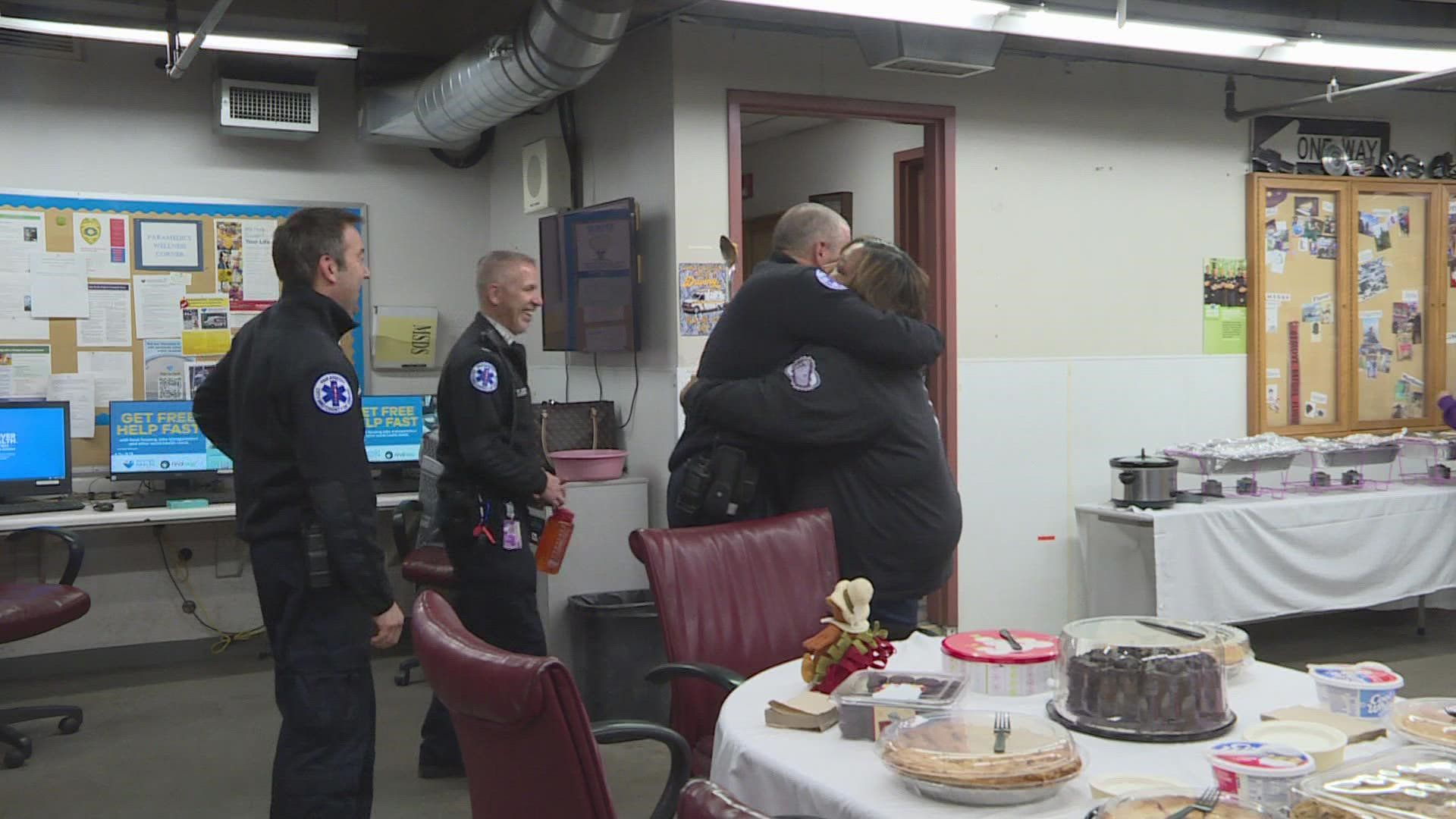DENVER — Paramedics facing large numbers of calls and challenges asked for help and ways to find some relief, especially in rural Colorado.
It's been a tough few years, especially with COVID.
Denver Health Paramedics are on track to run 125,000 calls this year, but that's just the start of the challenges.
"More people are calling 911, faster than the city is growing," Chief paramedic Gary Bryskiewicz said.
He said it's hard to pinpoint why, but there are a few theories.
"[It's] More of a question of public perspective and how do they access care?" Bryskiewicz said. "Quite often people don't know, insured or not, whatever that looks like in their personal life, they don't know how to access their care. 911 is their way of accessing care."
He also said people have heard that emergency departments are busy and that arriving in an ambulance might mean they are seen faster.
"That's completely not the case at all," Bryskiewicz said. "Once you get to the hospital, they are going to triage based on medical necessity."
The growth of Denver also plays a very real role in challenges. There's more traffic, more time to spent at scenes.
"People are more inquisitive of what their care is going to look like," Bryskiewicz said.
The way the city is being built is also changing how paramedics respond.
"Vertical growth," Bryskiewicz said. "It used to be pulling up to the front of the house is now pulling up to the front of the house, going through the foyer, waiting for the elevator to get up to the seventh, eight, 12th floor."
Hospitals and emergency rooms being at capacity means paramedics are waiting for available beds.
"What was taking 45 minutes [to] do an entire call, now taking 55 minutes to an hour to do a call," he said.
"Seven to 12 calls a day seems to the usual these days," said paramedic John Metzler, "It's a lot." Metzler has worked with the Denver Health paramedic division for 25 years.
With more calls, it means paramedics are turning around and going back to calls with fewer breaks because there isn't time.
"There are times we drop off at a hospital and dispatch calls and asks can you turn and catch another call," said Matt Taylor, a Denver Health paramedic of 12 years, "We try to get to as many people and patients as you can."
"The call load is so busy sometimes we don't have time during your shift to decompress," said Vernita Lewis, a paramedic of 23 years.
"It's important to handle the stress and not let the stress handle you," she added.
That's the pressure on Denver Health Paramedics, the state's busiest EMS service that has a very different set of resources than in rural Colorado. But calls for help are going up there as well.
"More people utilizing the amazing back country in Colorado then people get hurt," Democratic State Senator-elect Dylan Roberts said. "So EMS is busier than they ever have been in the last couple of years."
Via testimony, Roberts learned some areas have one ambulance or share one with a neighboring city or county.
"People [are] waiting an hour maybe even two for a heart attack response or emergency response in the back country," Roberts said.
Colorado is also the only state in the country that doesn't have a state-level regulatory system for ground ambulances. Roberts said there was no regulatory oversight and no consumer protection.
An idea was born, debated, and passed into law that utilized that last point.
It requires ambulance operators to be licensed by the state and meet state requirements. Those applications and licenses will come with a fee. That money will then be pooled to help under-resourced departments afford more resources, which is anticipated to reach mostly rural Colorado departments.
Paramedics in rural Colorado are doing the best they can with resources they have.
The idea is that every rural county will have at least its own ambulance, and more money to hire more paramedics and medical supplies.
A task force is working out what those application and licensing fees will look like, which will determine how much money it brings in.
SUGGESTED VIDEOS: Next with Kyle Clark

